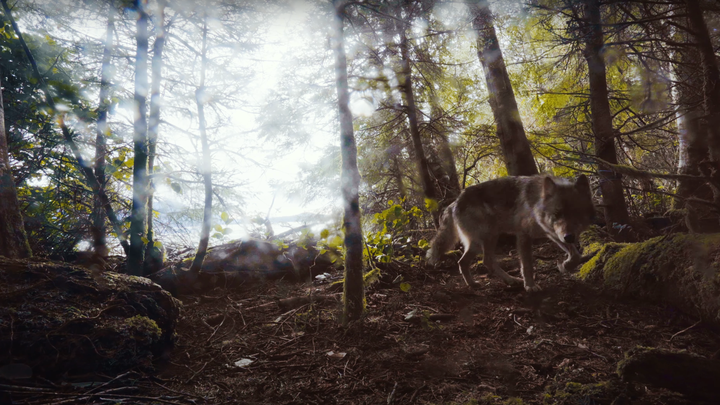
Create QʷAYAĆIIK with us: a film to protect coastal wolves
Donation protected
Dear friends, family, and community,
We have been working on creating QʷAYAĆIIK, a documentary about learning to coexist with coastal wolves, for the last three years. Held by community and many, many hours of devoted work, we are now further than we’ve ever been: we are partnering with the National Film Board of Canada, Knowledge Network, local organisations and communities to make this important project a reality. We are searching for our last bit of funding, and turning to our community for support.
This story is nuanced, and we have been thoughtful about the details shared with you here, in order to safeguard the well-being of the wolves and humans involved. We are deeply looking forward to the day we all get to experience this story together.
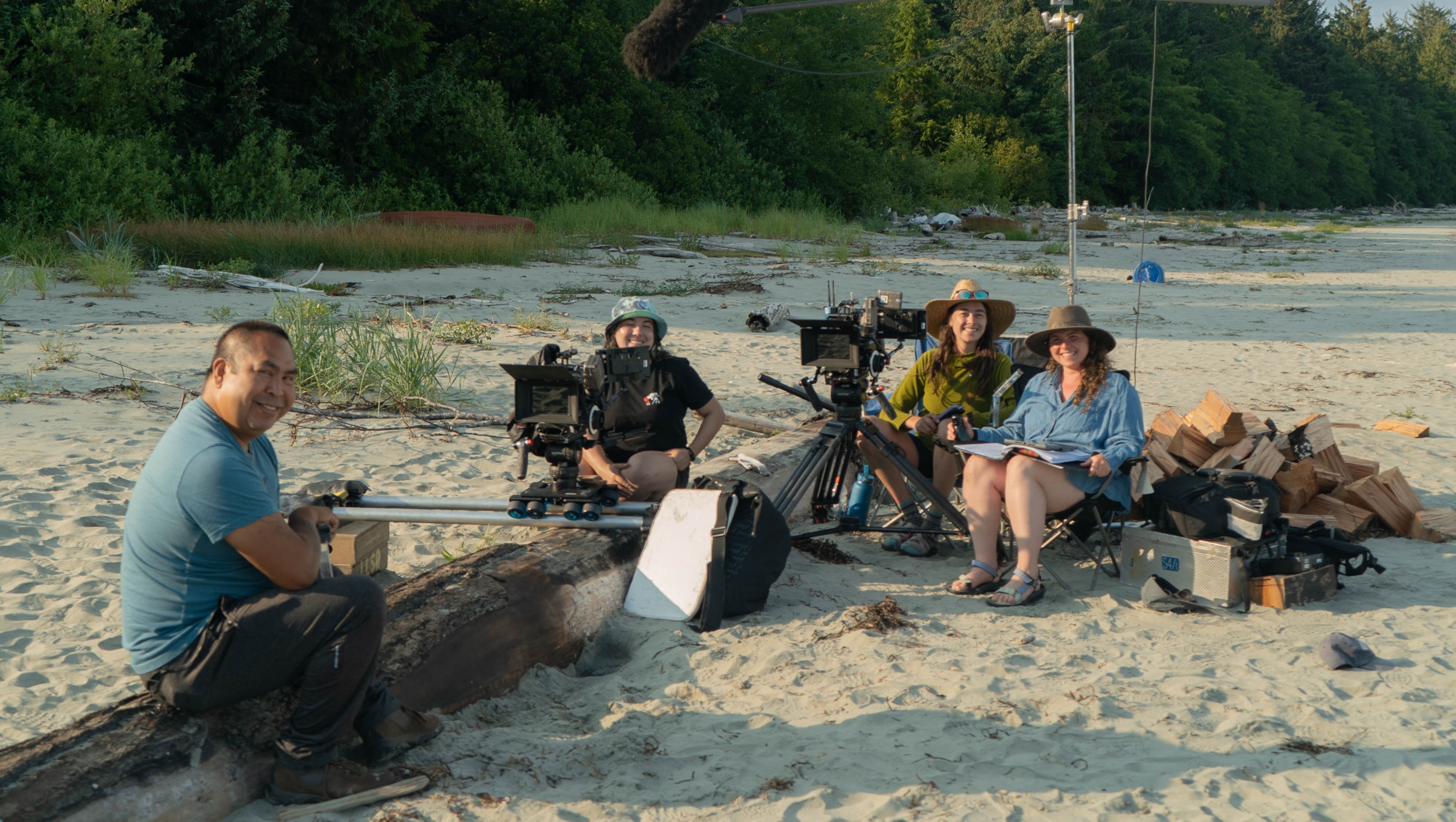
What is the film about?
QʷAYAĆIIK follows a couple and their community learning to coexist with wolves, among increased human-wolf conflict in Nuu-chah-nulth territory. This is a community-led project exploring ethical filmmaking and the coming together of Indigenous and non-Indigenous perspectives to restore long-standing Nuu-chah-nulth traditional knowledge, for place-based protection of coastal wolves.
A note from our Director, Sam Rose Phillips:
“Wolves were the first more-than-human beings that spellbound me. And the earliest connection I can pinpoint as to why I’ve chosen to be a wildlife filmmaker. From finding their tracks, to hearing a wolf howl in labour, to seeing a wolf pass outside my bedroom window – knowing this is their home has been at the heart of my choice to grow roots in Nuu-chah-nulth territory. Early in my career, I learned about the risks of habituation caused by filmmakers and photographers. I decided that regardless of how much I would love to document wolves, I would not contribute to wolf habituation. I looked for other ways to help the coastal packs. Around this time, a local group began gathering to mitigate human-wolf conflict. Research confirmed that our communities are rare, as one of the only records of human-wolf conflict being a product of loving wolves too much. I spoke with the committee many times about the need for nuance and respect in the wolf story.
These were the first seeds of QʷAYAĆIIK.
Our story, process, and team reflect a collaborative approach with the community, and of Indigenous and Non-Indigenous changemakers coming together to restore a thriving environment for coastal wolves. Zoé, Gloria, and I intertwine strong foundations working with Indigenous communities on this coast and award-winning film experience. With our Nuu-chah-nulth Executive Producer, Cultural & Community Advisor, Story Editor, and Nuu-chah-nulth Advisory Committee, our team brings together nuanced and diverse perspectives to share intersectional solutions to tackle today’s environmental crisis.
QʷAYAĆIIK is the story I’ve always wanted to tell, with the team, approach, care, and ethics to do so in a way that I deeply trust.”
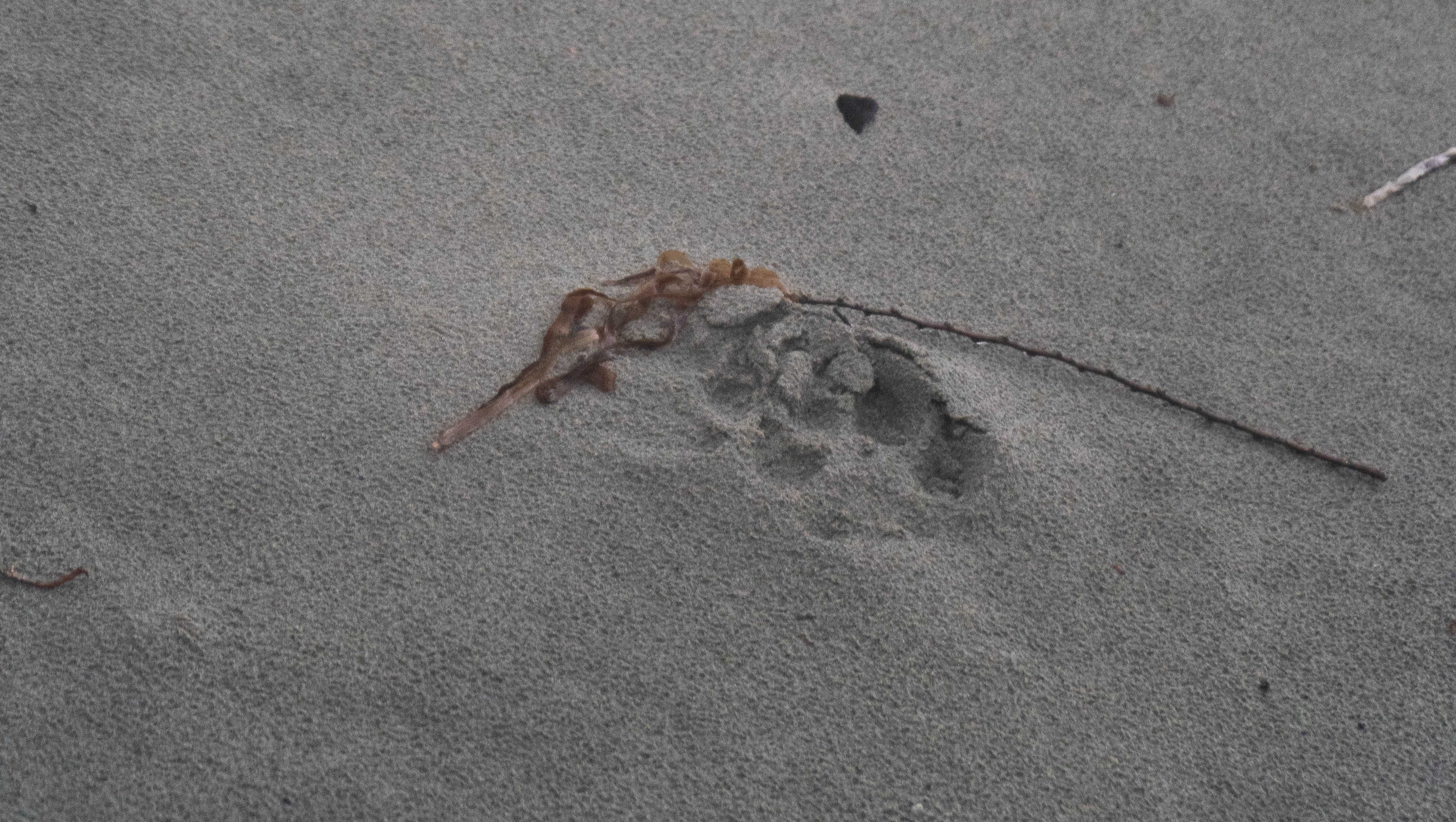
Why is this important?
At the heart of this story is a question we will always be asking ourselves: how do we live in harmony with other beings, and especially predators?
In Nuu-chah-nulth territory, coastal wolves and humans are neighbours, and the wolves are at risk of habituation because of human behaviour. A habituated wolf is no longer wary of humans and is often ‘destroyed’ as a last resort before they attack a human or teach the behaviour to their pack. Most wolf attacks in this region occur when wolves are habituated and/or food conditioned. In just one year–2017–the British Columbia Conservation Officer Service received over 20,000 human- wildlife conflict reports. They receive an average of 400 calls per year regarding wolves. In addition to the hundreds of wolves dying at the hands of wolf culls, and the habituated wolves who are euthanized after posing a public threat, the BC government estimates that more than 1,200 wolves are killed annually from trophy hunting and trapping. The loss of individuals is highly disruptive and detrimental to wolf packs.
Threats to coastal wolves are unfolding right now.
QʷAYAĆIIK unravels the fatal misunderstanding coastal wolves are caught in. Either idealised as symbols of wildness, or feared and scapegoated, there is a third, older way of seeing wolves—one that provides a whole sense of the animal: respect. With wolves as a cultural-keystone-species, QʷAYAĆIIK supports the Nuu-chah-nulth people in restoring their long-standing values of living respectfully with wolves and offers the world a way forward for how to coexist with all species, in all places. QʷAYAĆIIK asks: What are the nuances of sharing space with coastal wolves? How can we collectively understand and protect the natural world, moving beyond sensationalised media?”
Our project will empower affected communities to design local solutions to manage human-wildlife conflicts. QwAYAĆIIK reveals a pathway towards repairing our relationship with nature.
Help us create this film:
Your funds will go towards filming this January and March 2025. We are missing $25,000 to get out on the field this winter and begin telling this important story.
Help us get to the finish line, please consider donating what you can: $5, $50, $100, $1,000, $5,000… anything helps!
By donating, you will receive a thank you acknowledgement in the film credits.
If you are in Canada and want to receive a tax receipt with your donation, contact us through our website (sealfolkfilms.com) and we can arrange that with our partner organisation.
Thank you from the bottom of our raincoast hearts,
Sam, Zoé, and Gloria
We leave you with a few more moments from the field...
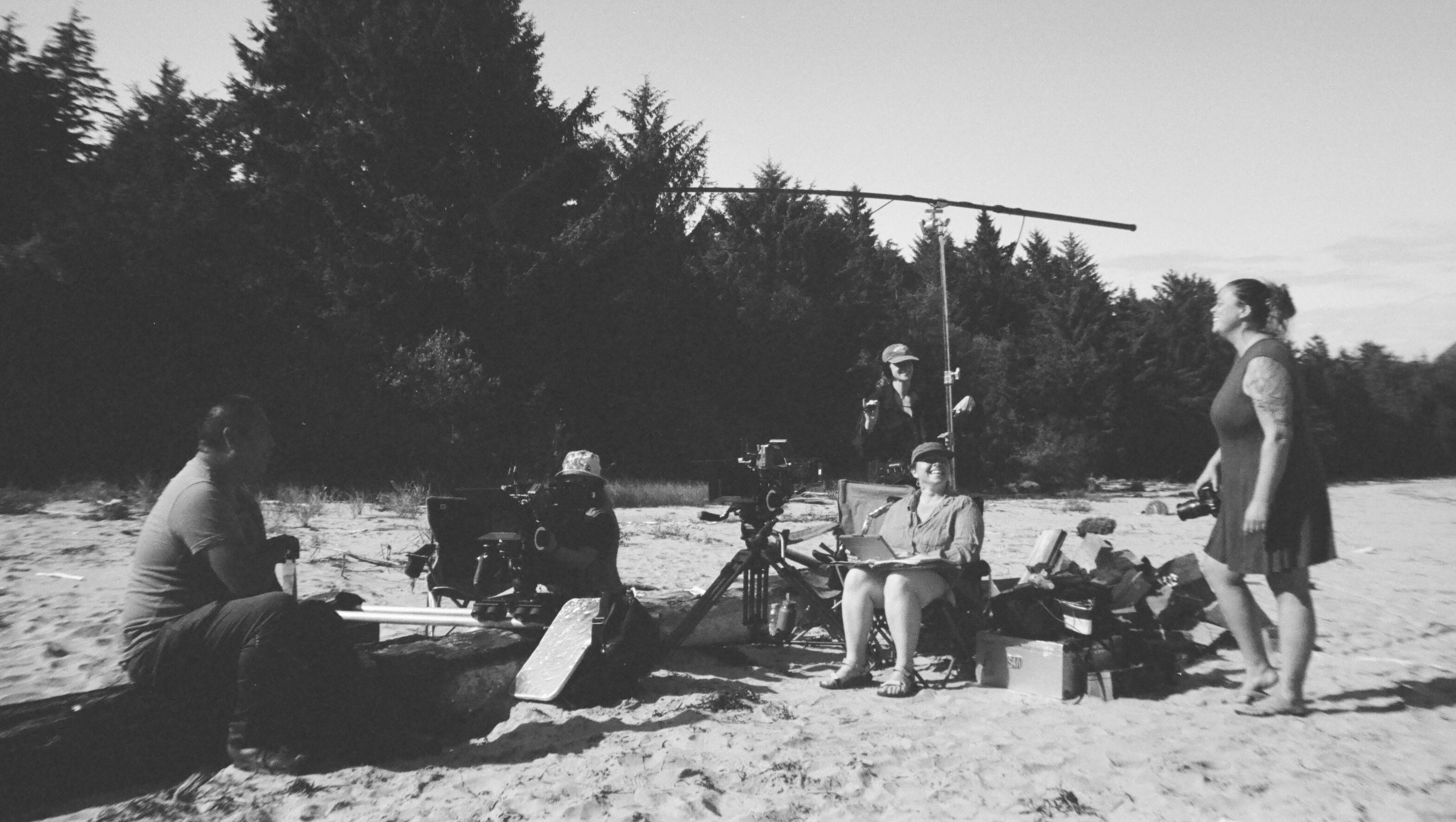
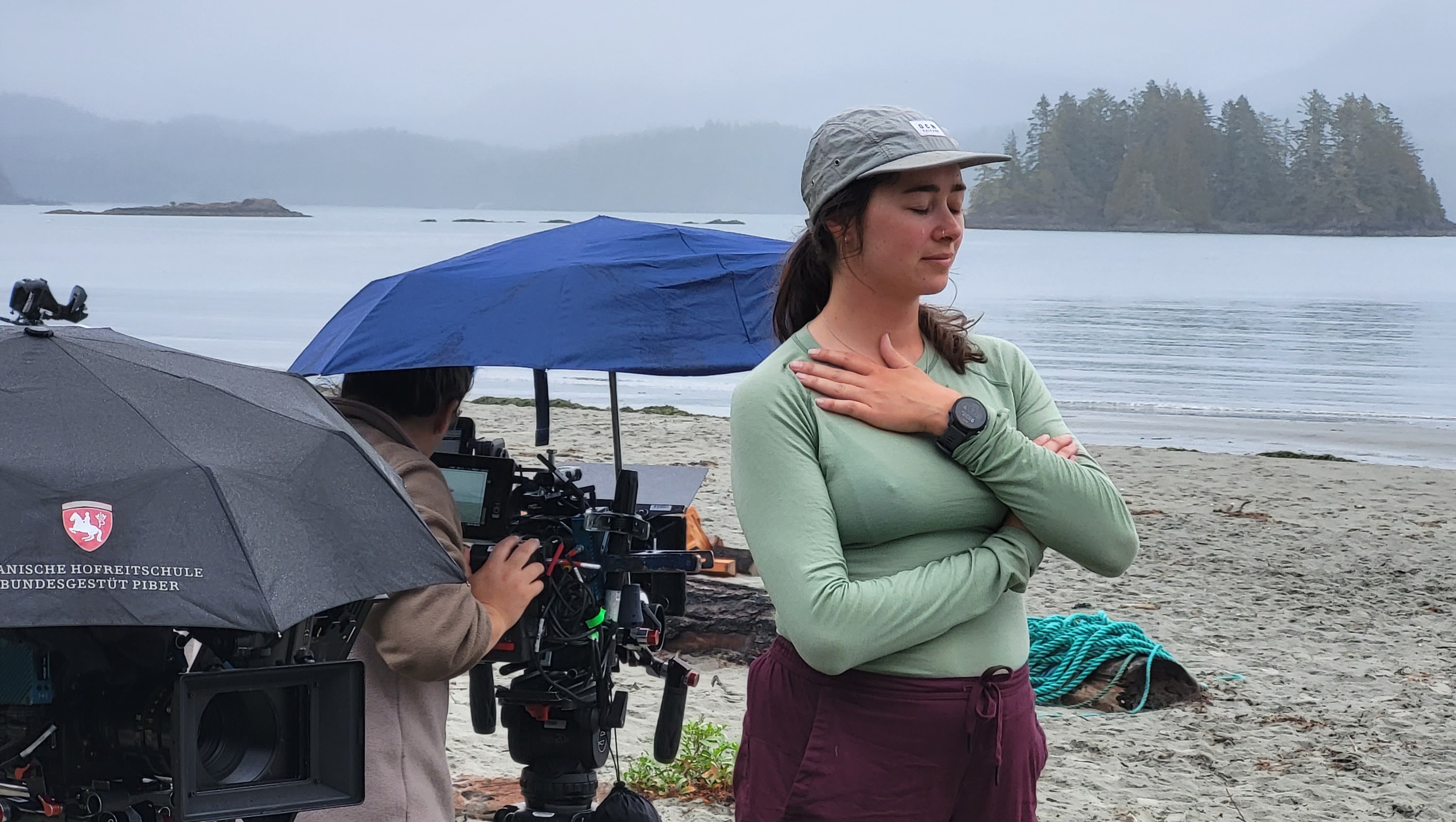
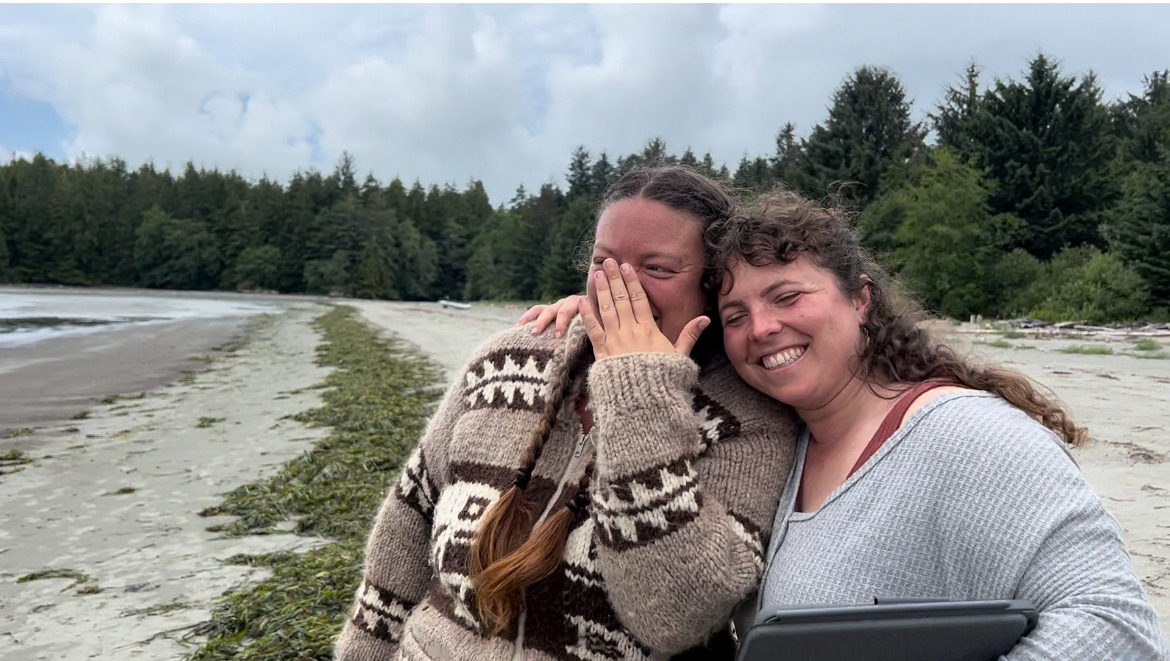
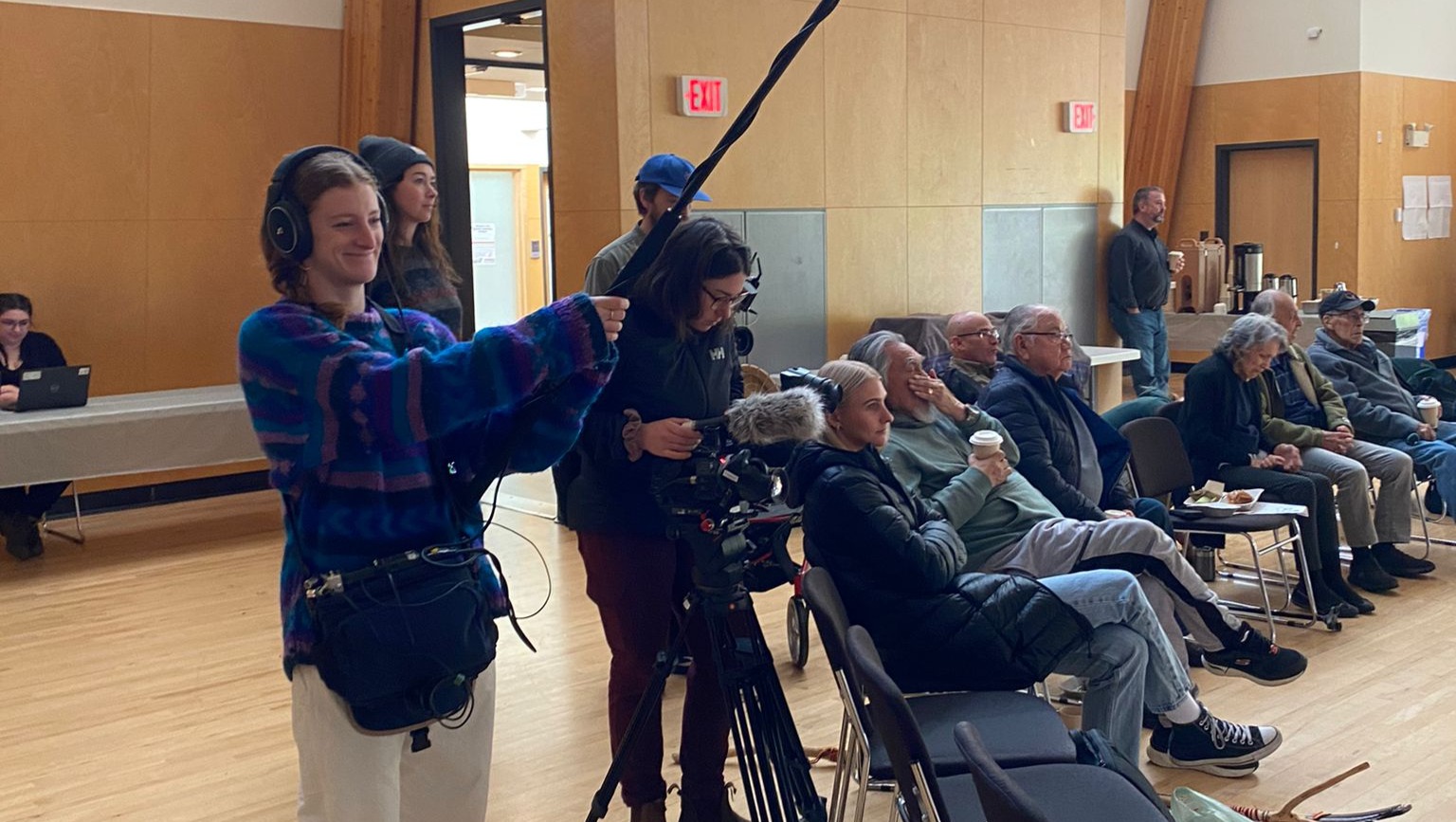
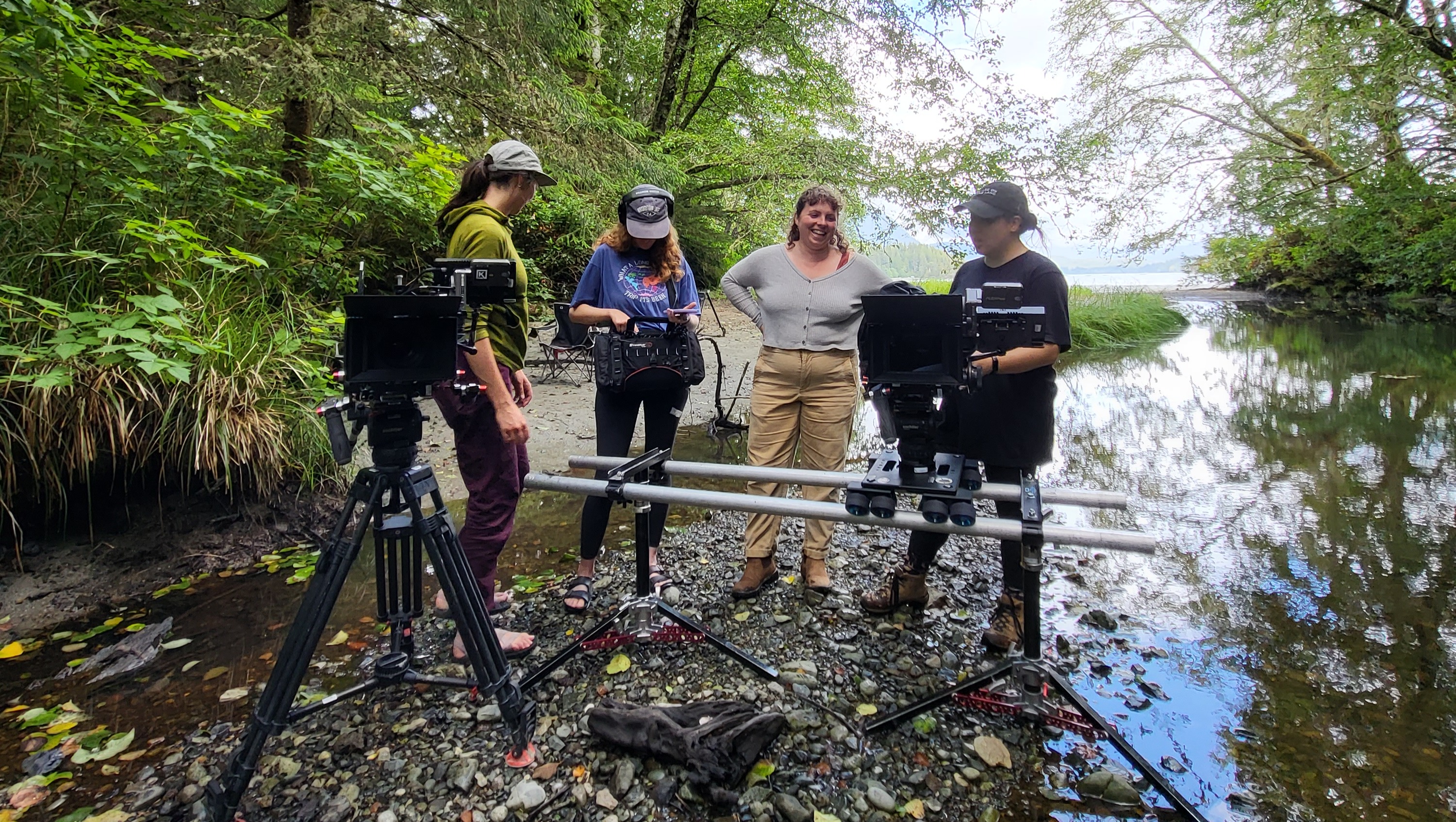
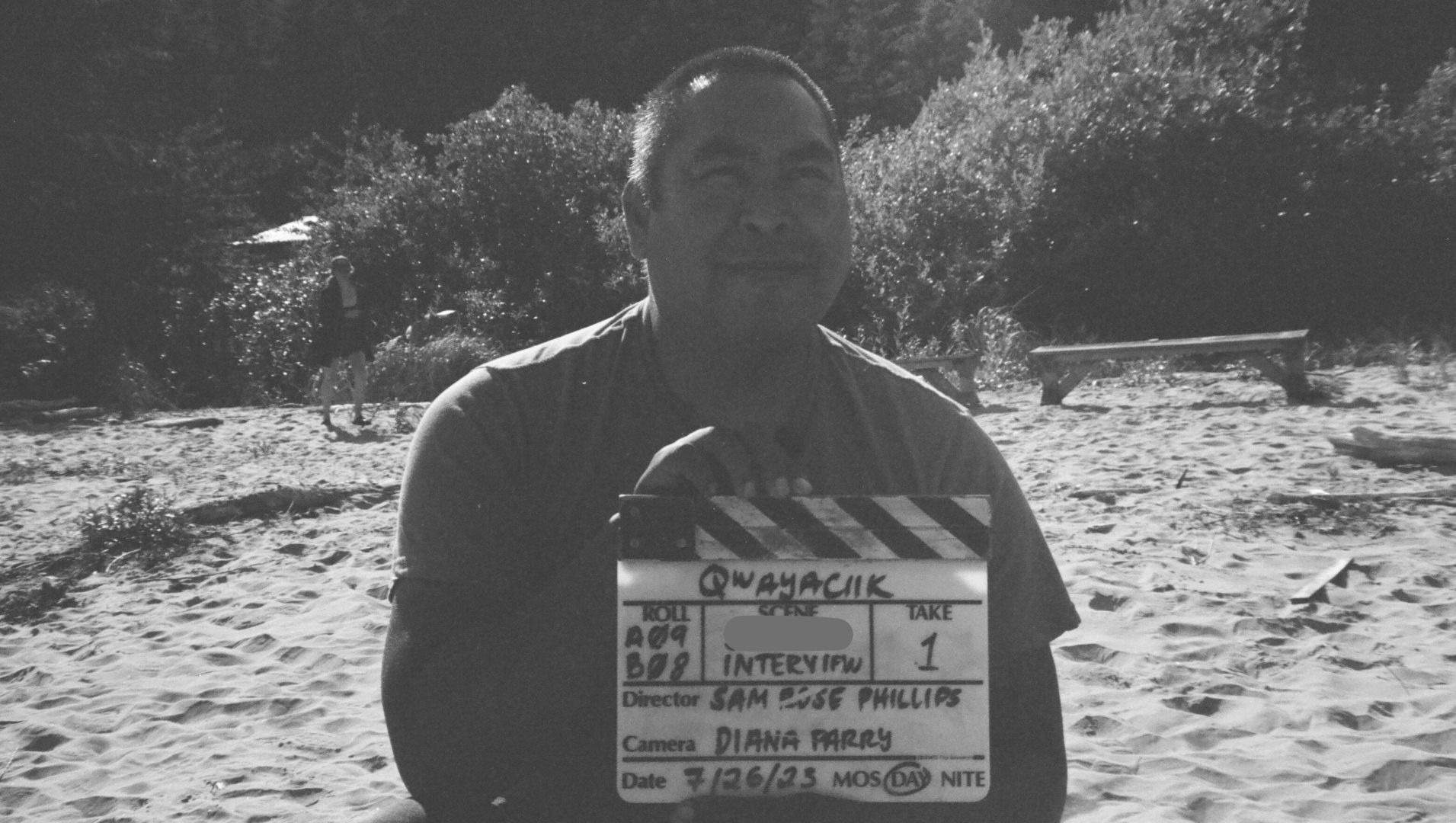
Organiser
Gloria Pancrazi
Organiser
Comox, BC